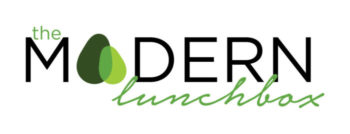Stretch marks are one of those things that women tend to dread the most when they think of pregnancy. They have a bad rap and in a sense they really signify the difference in your pre and post baby body. It’s 2021 so let’s normalize the fact that bodies do change as we age, whether we have been pregnant or not. Cellulite and stretch marks and loose skin are all normal aspects of the human body and are nothing to be ashamed of.
Let’s talk a bit about what stretch marks actually are and get into some tips for reducing their appearance and severity.
What are Stretch Marks
Stretch marks are caused by small tears in the tissue layers of your skin as it is stretched. They can be seen any time your body goes through rapid weight gain, not just pregnancy. Some people see them in adolescence as their bodies grow or in adulthood if they put on some extra weight. Sorry to burst anyones bubble, but their is a genetic component to developing stretch marks as well. If your mama got them, you may get them too. If you got them during puberty growth there’s also more of a likelihood you will get them during pregnancy.
The most common areas stretch marks occur are your stomach, hips, butt, thighs, and breasts. While the development of stretch marks may be inevitable, there are things you can do to decrease the severity and minimize the appearance. Also, keep in mind that stretch marks do fade over time. Not only that, but your body is doing something miraculous. You are growing life. Keep that thought front and center in your mind. You’re a badass and if you get stretch marks they are just a reminder that YOU ARE A BADASS.
Prevention of Stretch Marks
Moisturize: Keeping it real here, there is no magical moisturizer that will ensure the prevention of stretch marks. However, keeping your skin moisturized will help with the dryness and itchiness that comes with a growing body. Scratching stretch marks can make them worse so the more moist you can keep your growing body, the better. My favorite oils for moisturizing are argan oil, almond oil, and vitamin e oil. All of these oils can help increase the skins elasticity. Earth Mama Organics also makes a really nice belly oil that I’ve used and love. If you want to know how nontoxic and safe a product is that you’re using for anything skin, hair, nail, or even home related, head over to the EWG’s Skin Deep site to get more info on product safety and toxicity.
Stay hydrated: Staying hydrated will increase your skins elasticity, making tissue layers less likely to tear. Unless your doctor has told you otherwise, aim for a minimum of 80oz of water a day during pregnancy.
Slow and steady weight gain: As stretch marks are caused by rapid changes in your weight, a slow and steady weight gain can help reduce the liklihood of developing stretch marks. Weight gain during pregnancy is important and necessary, but try and gain consistently instead of all at once. Current guidelines recommend eating an additional 340 calories per day in your second trimester, and 450 calories per day in your third trimester. Focus on adequate caloric intake and nutritious foods and your body will gain appropriately.
Vitamin C: Vitamin c is necessary for your body to create collagen and helps promote wound healing. It’s a great antioxidant and helps protect from cell damage. You can find it in citrus fruits, cantaloupe, broccoli, leafy greens, kiwi, and so many other fruits and veggies. I also talk in this post about how vitamin c can help reduce your risk of PROM, premature rupture of membranes.
Vitamin E: This is one of the most well known vitamins in terms of skin health. It’s an antioxidant that helps the skin produce elastin and collagen, both of which will help the skin stretch without tearing. You can buy vitamin e oil to use topically on your belly, hips, bum, and breasts during pregnancy.
Collagen: Collagen is an essential component to your skin’s elasticity. When your skin stretches and grows too quickly, it can be difficult for your body to produce enough collagen to prevent tearing of those inner layers. Collagen supplementation can be a great way to give your body extra collagen.
Zinc: Zinc is another necessary vitamin for collagen formation and healthy skin. Animal meat and seafood are the best food sources of zinc, so talk to your doctor if you’re vegetarian or vegan, or just suspect you may not be getting enough zinc.
All of these nutrients and oils are going to help keep your body and skin healthy and moisturized. But remember, there’s no miracle product that can guarantee the prevention of stretch marks so if you do notice them, try not to give them too much focus. They are just a sign of the amazing work your body is doing and they will fade over time.




